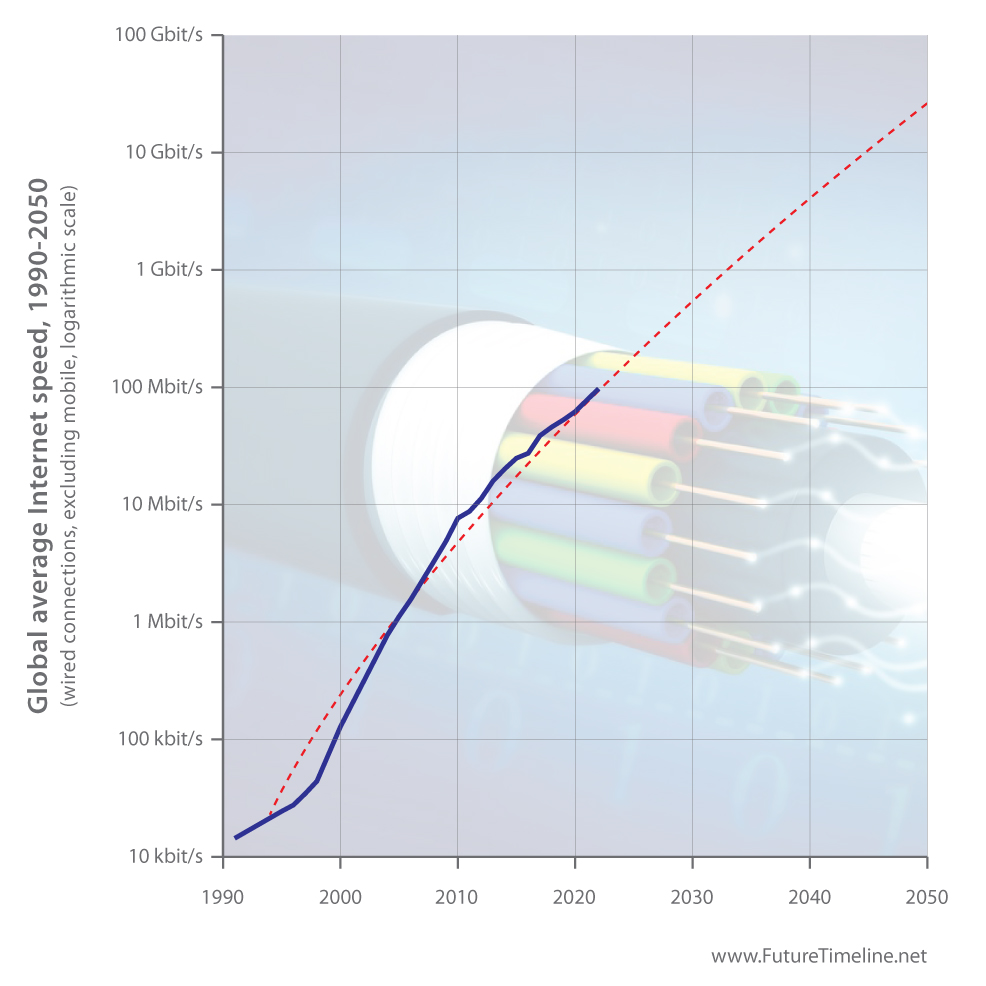From the limited studies and reports out there, I was eventually able to put this together. It's for wired connections, i.e. excluding mobile, and is the global average from 1990 until 2050. I'll be posting this in our Data & Trends pages shortly, and updating a couple of predictions on our timeline.
There's a huge difference between the richest/most technologically advanced nations and the poorest/least developed ones. However, within a few decades even the latter will have access to much faster connections.
What applications might be possible with gigabits of bandwidth?
